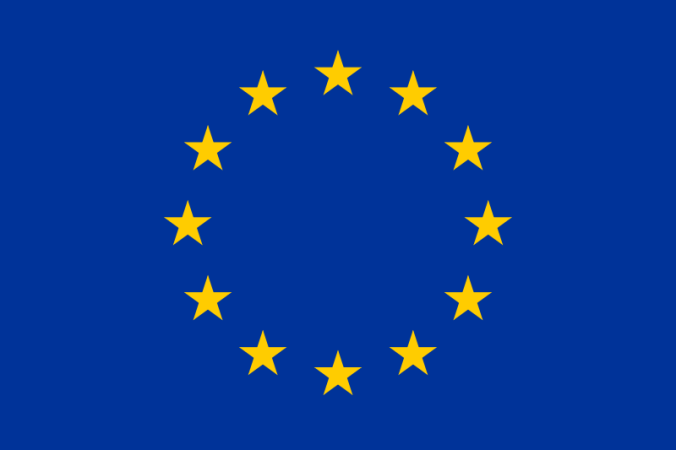
The Economist recently described refugees as “reasonable people in desperate circumstances”. Tragically, similar rational observations are in short supply. Amidst rising public concerns over the massive influx of displaced peoples and the European Union’s repeated failure to sufficiently respond to the crisis, specious populism has increasingly emerged at the forefront of political discussion. This has been compounded by the rapidly approaching possibility of a British exit from the EU and a broader resurgence of nationalisms across the Continent. The underlying cosmopolitan tenets of the European project may be starting to crumble. Paradoxically however, this turbulence may also provide an excellent opportunity to re-assert the EU’s humanitarian ethics.
Mass migration has increasingly come to define the BREXIT debate. UK Nationalists and Eurosceptics have a tendency to conflate public frustration over record high immigration figures with the refugee crisis, framing them as synonymous issues that can only be resolved through a ‘Leave’ victory in the referendum. With a recent Economist/Ipsos MORI poll revealing 56 per cent of British citizens view immigration as the most important issue facing the country, the expediency of politicising the refugee issue becomes fairly obvious. In light of the 2015 Paris attacks, demagogues across Europe have also sought to securitise the crisis, drawing dubious links between migration and terrorism by using inflammatory terms and stoking hardline nationalist sentiments.
Pervasive xenophobia has proliferated across the continent, born on an undercurrent of popular anxiety. Trumpeting the dichotomy between ‘European values’ and the ‘undesirable’ qualities of ‘outsiders’, far right parties are seizing the opportunity to re-engineer European liberalism as a vehicle for social discrimination. In this sense, European identity has increasingly become anathema to the cosmopolitan norms it was trying to advance, igniting tensions along predominantly ethnic and religious lines and accelerating a new wave of national isolationism.
In such an atmosphere, the legal realities of dealing with refugees have been largely overlooked. As Zoe Gardner, spokeswoman for London-based Asylum Aid, has argued, “if your issue is you want no refugees in the UK, then your issue is not with the EU – it is with global law”. In contrast to regular migration, refugees and asylum seekers are protected under the 1951 Refugee Convention and its 1967 Protocol. These statutes transcend the authority of national border controls and make the outcome of the BREXIT debate largely irrelevant to the refugee issue. However, given the level of European hostility towards fulfilling their legal obligations, it remains unclear how much impact the humanitarian values underlying international law actually have today. The EU is facing an existential crisis. Crucially however, this is the product of nascent xenophobic and Islamophobic tendencies long associated with Europe’s far right, rather than the malign interests of external agencies.
The inflexibility and institutional deficiencies of the EU itself has not helped the situation either. Its initial approach of regional refugee containment was poorly executed and relied on the Middle East acting as a closed system, with already saturated local states absorbing any spillover generated by the Syrian crisis. When the strategy was eventually adapted to manage a growing exodus of peoples, gridlock in the European Parliament, vetoes by an increasingly recalcitrant Eastern European bloc and the resurrection of internal border controls across Schengen, have all undermined the EU position further. In the eyes of internal and global audiences, the EU has become an inert bureaucratic Leviathan incapable of resolving the challenges now facing it. In this context, it is understandable that the deal with Turkey was hurriedly ratified in March 2016. At its core, the agreement aims to mitigate refugee flows coming into frontline European states by facilitating the fast-track mass return of migrants from Greece on a ‘one in one out’ basis structured along specific national quotas. However, the Council of Europe has subsequently condemned the bargain, maintaining “it at best strains and at worst exceeds the limits of what is permissible under European and international law” by infringing on the “basic norms on refugees’…rights”.
Leaving aside the practical issues in actually implementing the deal, it is ultimately an ad hoc strategy for shifting the ‘burden’ of dealing with refugees back to the Middle East. This entirely contravenes the humanitarian values codified in European law by re-locating people to countries that are well known to infringe human rights. It also installs a discriminatory regime at odds with the self-ascribed liberal aspirations of the EU. Perhaps most importantly, the agreement doesn’t offer a sustainable, long term solution to the crisis. The strain will only increase in the coming decades. Under the pressure of climate change, food insecurity and water scarcity, many host nations for refugees from neighbouring states, such as Kenya and Ethiopia, are liable to transition back into departure states over the coming years, creating further waves of displacement far beyond the numbers we are experiencing today.
It is therefore essential for the EU to design comprehensive institutional structures with the capacity to effectively deal with these issues. There is no silver bullet and any success will have to rely on a pan-European process involving multilateral coordination and contentious discussion. But, by initiating this conversation, there will be space to debate and re-define the underlying normative values of Europe providing an opportunity for much needed societal introspection. In doing so, it would allow sensible voices to confront and hopefully diffuse the Continent’s volatile political fringe, laying the foundations for a new, genuinely inclusive European project. By tackling what constitutes European values and a European identity, the EU may be able to finally ameliorate its darker tendencies and more fully embody the liberalism it seeks to champion.
You must be logged in to post a comment.